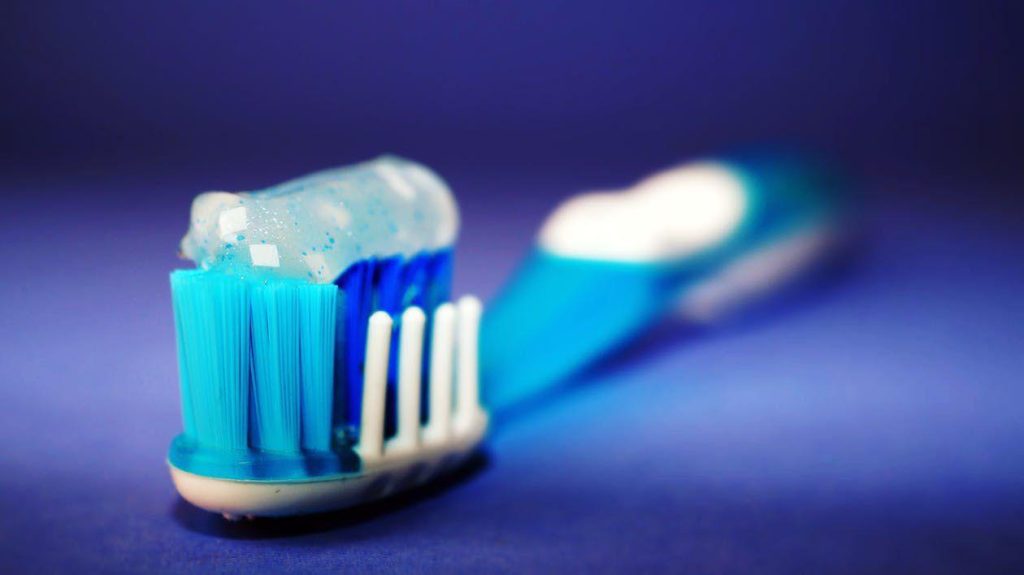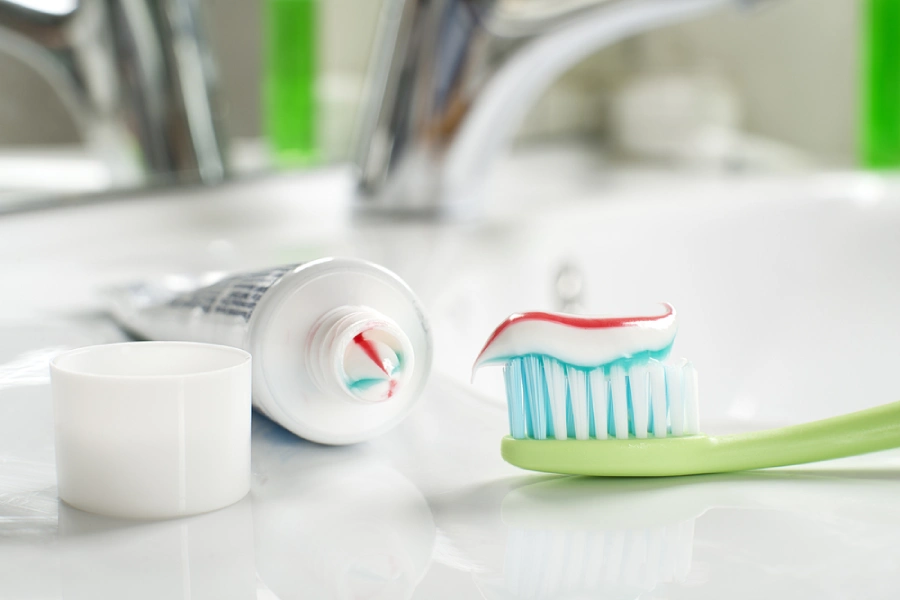Parent’s Guide to Their Children’s Oral Health

For parents, oral hygiene for kids is paramount. However, helping your child brush, floss and develop a clean, healthy smile can be difficult, particularly for parents who lack insights into their children’s oral health.
Perhaps this is why the number one dental problem among preschoolers is tooth decay. One out of 10 two-year-olds have one or more cavities. By age three, 28% of children have one or more cavities and by age five nearly 50% of children have one or more cavities.
The Super Dentists is committed to educating parents and children alike, and as such, we’re here to teach you about the ins and outs of oral health for kids. Here are some of the key questions to consider about your child’s oral health, and how you can help your son or daughter maintain beautiful teeth.
Start with a Daily Routine
While brushing teeth is probably not at the top of the “fun things to do” list for a child, instilling good dental hygiene for kids from an early age is essential for a lifetime of healthy teeth.
One of the best things a parent can do to help promote good oral hygiene for kids is model tooth brushing habits in front of your children. Parents modeling their dental care helps normalize it for kiddos. We all know that children model their behavior from parents, so showing rather than only telling about healthy tooth brushing routines will help them learn quickly!
A consistent daily routine of brushing and flossing is as essential as visiting the dentist’s office for checkups and cleanings. The Super Dentists recommend doing it after breakfast but before school in the morning and after dinner but right before reading and bedtime at night.
Here is a daily routine to promote healthy teeth for kids and set them off on the right path:
- Set time each morning and night for teeth cleaning, and try to make it fun instead of a dreaded task.
- Listen to your kids’ favorite music or sing songs as a brushing timer.
- Add a silly brushing dance to your routine.
- Play a funny video on your smartphone to pass the time.
- Use one of these fun toothbrushing apps.
- The Toothsavers Brushing Game helps kids track their own brushing in a fairy tale land.
- Disney Magic Timer by Oral B allows kids to navigate tooth brushing time with Disney, Marvel and Star Wars characters.
Dental Health for Babies
Tooth decay in babies is often called early childhood caries or baby bottle tooth decay. Healthy dental health for kids should begin early because tooth decay can develop as soon as the first tooth comes in causing problems with speech, eating and adult teeth that will eventually come in.
To set your baby’s teeth up for success, here are some simple procedures to follow for infant oral care.
Children three years old and under:
- Wipe your child’s gums twice a day with a soft, clean cloth or silicone finger sleeve in the morning after the first feeding and before bed.
- When teeth come in, start brushing twice a day with a soft, small‑bristled toothbrush and water.
- Visit the dentist by your baby’s first birthday to spot signs of problems.
- Talk to your pediatric dentist or doctor about putting fluoride varnish on your child’s teeth when the first tooth appears.
- Regular dentist visits.
Dental Health for Toddlers
Outside of a good oral care routine, there are a few important things parents can teach their children to aid in good oral health. For one, a child’s diet is paramount in keeping caries from developing. Sticky sugars can stick to the baby teeth and create plaque, so it’s important to limit the amount of juice, candy and dried fruit a child habitually indulges in as it can lead to bad dental hygiene for kids.
Secondly, making sure your child is getting fluoride varnish at dental appointments can prevent around 33% of cavities in baby teeth. Another great option for supporting great dental health for kids is having The Super Dentists apply dental sealants to the chewing surfaces of the back teeth, said to prevent 80% of cavities.
Below is a longer list of things you as caretakers can be doing to help promote healthy teeth for kids (children six years and older).
- Avoid sticky sugar foods.
- Ask your child’s dentist to apply dental sealants when appropriate.
- Choose an appropriately sized toothbrush.
- Don’t let your child go to bed with a bottle.
- Drink tap water that contains fluoride or use fluoridated toothpaste.
- Floss at least once a day.
- Help brush your child’s teeth twice a day with fluoride toothpaste.
- Regular dentist visits .
When teaching your children to brush, parents only need to use a pea-sized amount of toothpaste and encourage your child to spit out the toothpaste rather than swallowing it.
Children should start flossing once a day when teeth begin to grow next to each other. The tongue should also be brushed to remove bacterial plaque. If your child doesn’t like brushing their tongue, use a tooth scraper.
Dental Health for Children
Cavities in children is a problem that can be prevented. About 20% of children ages 5-11 years old have at least one untreated decayed tooth. This is why it is important to teach dental health for kids when they are young.
When your child reaches 8-9 years old, it’s time for them to take over control of their teeth brushing duties. By this age, most children have developed the dexterity to effectively reach all the teeth in the front and back of their mouths. However, don’t get too excited handing over the reins of oral hygiene because adult supervision is still recommended.
Teach these easy steps for outstanding dental hygiene for kids.
- Apply a pea-sized amount of toothpaste.
- Angle the toothbrush at 45 degrees towards the gums of the upper or lower teeth.
- Move the brush gently back and forth with short strokes.
- Hold the toothbrush in a vertical position to brush the front teeth.
- Brush the tongue to remove bacteria.
How Can Your Child Prevent Cavities?
Keeping the gums and teeth clean will enable your child to minimize the risk of cavities. Also, if you teach your child about proper brushing and flossing techniques, he or she may be better equipped to avoid cavities both now and in the future.
Many factors may impact the development of cavities, including:
- Lifestyle
- Diet
- How an individual takes care of his or her teeth
- The presence of fluoride in the water that an individual uses day after day
- The use of toothpaste
- Genetics & family history
If cavities go untreated, they can destroy teeth. Or, cavities could cause nerve damage to a tooth, leading to an infection at the root tip that may require surgery or tooth extraction.
Ultimately, there are many ways to ensure your child can avoid cavities, such as:
- Brush the teeth at least twice a day with a fluoride toothpaste.
- Floss daily to eliminate plaque from between the teeth and under the gums.
- Limit the intake of starchy and sugary foods, i.e. foods that may cause plaque acids that can lead to tooth decay.
Teach your child about the importance of oral health at a young age – you’ll be glad you did. By doing so, your son or daughter will be able to learn about proper brushing and flossing techniques and minimize the risk of cavities.
Are There Specific Brushing Techniques That Your Child Should Use?
For children, getting the hang of brushing the teeth may seem impossible at times. Fortunately, there are several steps that you can use to help your child become accustomed to brushing his or her teeth:
- Place a pea-sized dab of fluoride toothpaste on a soft-bristled toothbrush.
- Brush the inside and outside of the child’s teeth, and move the toothbrush gently back and forth across the teeth.
- Place the toothbrush at an angle and move it back and forth along the child’s outer gumline.
- Brush back and forth along the tooth’s chewing surface.
- Using the tip of the toothbrush, clean behind each tooth and on the top and bottom of the tooth.
- Brush the tongue softly.
Spend some time teaching your child about proper brushing techniques. You also can use this opportunity to educate your child about the importance of oral health practices and bond with your child simultaneously.
When Should Your Child Begin to Floss?
Flossing the teeth will help your child protect the gums. The American Dental Association recommends flossing the teeth daily, and doing so helps reduce the risk of gum disease, cavities and other oral health issues. Also, new studies are linking flossing to an increase in life-expectancy, with some showing a six-year increase for people who floss regularly.
Many parents begin flossing their children’s teeth at the age of 4. Flossing will allow you to eliminate food particles and plaque between your child’s teeth that brushing misses, ensuring you can keep his or her teeth looking great.
Furthermore, many children are able to floss on their own by the age of 8. And if you teach your child about flossing now, he or she should have no trouble transitioning to flossing on their own.
How Can Diet Impact Your Child’s Oral Health?
A balanced diet is essential for a child to maintain strong, healthy teeth. In fact, a diet that features foods rich in vitamins and minerals will support your child’s growth and development and oral health.
In addition, a diet should feature the proper amount of fluoride, a naturally occurring mineral that is found in many foods and beverages. Fluoride makes the outer surface of the teeth (enamel) more resistant to acid attacks and has been shown to help individuals combat cavities. Your pediatric dentist can provide you with full details about fluoride and how much fluoride your child should have in his or her diet.
It also is important to note that frequent snacking can affect your child’s oral health. Cookies, dried fruits, potato chips and other sugary and starchy foods can combine with plaque to create acids that attack tooth enamel. As a result, frequent snacking may lead to cavities and other oral health problems.
Lastly, if you ever have oral health concerns or questions, feel free to contact The Super Dentists – we’re pediatric dentistry and oral health experts and are happy to assist you in any way we can.



